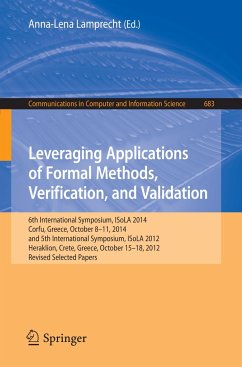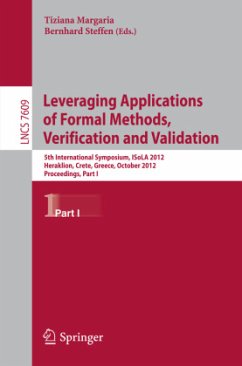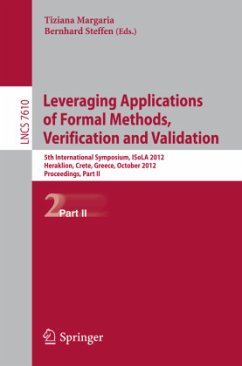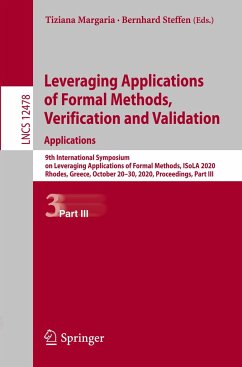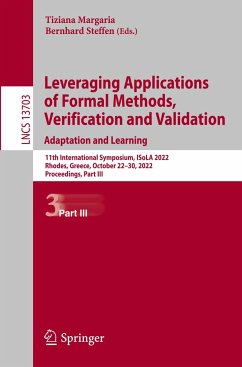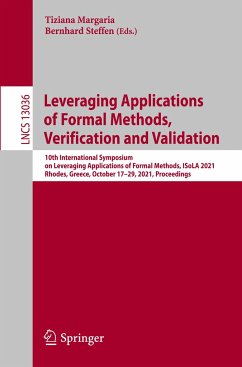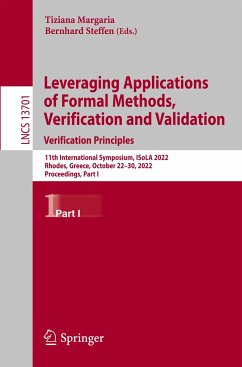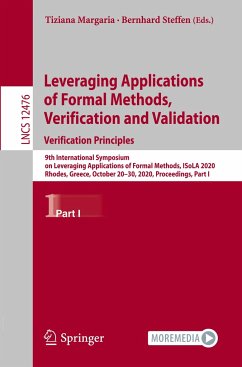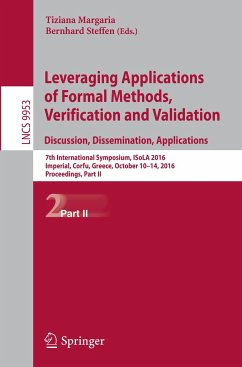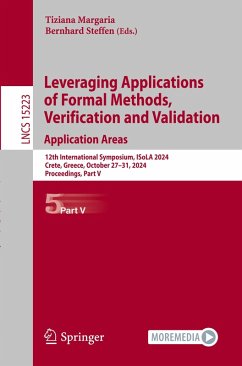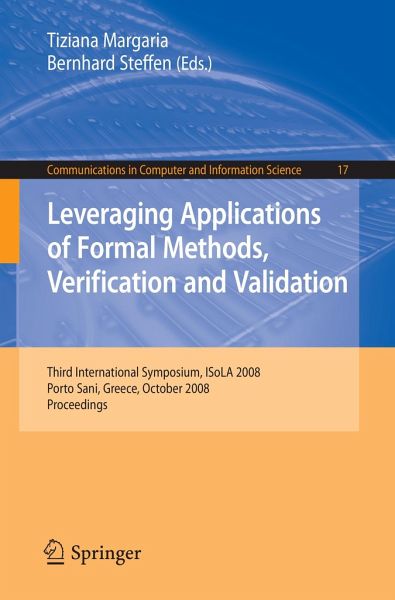
Leveraging Applications of Formal Methods, Verification and Validation
Third International Symposium, ISoLA 2008, Porto Sani, Greece, October 13-15, 2008, Proceedings
Herausgegeben: Margaria, Tiziana; Steffen, Bernhard

PAYBACK Punkte
58 °P sammeln!
This book constitutes the thoroughly refereed proceedings of the Third International Symposium on Leveraging Applications of Formal Methods, Verification and Validation, held in Porto Sani, Greece, in October 2008
The 68 revised full papers presented together with 2 invited talks and 1 keynote speech were carefully selected from numerous submissions. The topics covered are tools and applications in industrial software quality control; an introduction of multi-core systems in automotive applications; model-driven SOA; applications of formal approaches to service-oriented computing; trustworthy computing: theories, methods, tools and experience in China and South East Asia; non-functional requirements in embedded systems; processes, methods and tools for developing educational modules to support teaching and technology transfer; ubiquitous and context aware systems; formal methods for analysing and verifying very large systems; tools for service-oriented discovery of knowledge; tackling the challenges of software development process for SMEs with rigorous support and open source.
The 68 revised full papers presented together with 2 invited talks and 1 keynote speech were carefully selected from numerous submissions. The topics covered are tools and applications in industrial software quality control; an introduction of multi-core systems in automotive applications; model-driven SOA; applications of formal approaches to service-oriented computing; trustworthy computing: theories, methods, tools and experience in China and South East Asia; non-functional requirements in embedded systems; processes, methods and tools for developing educational modules to support teaching and technology transfer; ubiquitous and context aware systems; formal methods for analysing and verifying very large systems; tools for service-oriented discovery of knowledge; tackling the challenges of software development process for SMEs with rigorous support and open source.
This volume contains the conference proceedings of ISoLA 2008, the Third International Symposium on Leveraging Applications of Formal Methods, Verification and Validation, which was held in Porto Sani (Kassandra, Chalkidiki), Greece during October 13-15, 2008, sponsored by EASST and in cooperation with the IEEE Technical Committee on Complex Systems. Following the tradition of its forerunners in 2004 and 2006 in Cyprus, and the ISoLA Workshops in Greenbelt (USA) in 2005 and in Poitiers (France) in 2007, ISoLA 2008 provided a forum for developers, users, and researchers to discuss issues related to the adoption and use of rigorous tools and methods for the specification, analysis, verification, certification, construction, test, and maintenance of systems from the point of view of their different application domains. Thus, the ISoLA series of events serves the purpose of bridging the gap between designers and developers of rigorous tools, and users in engineering and in other disciplines, and to foster and exploit synergetic relationships among scientists, engineers, software developers, decision makers, and other critical thinkers in companies and organizations. In p- ticular, by providing a venue for the discussion of common problems, requirements, algorithms, methodologies, and practices, ISoLA aims at supporting researchers in their quest to improve the utility, reliability, flexibility, and efficiency of tools for building systems, and users in their search for adequate solutions to their problems.





